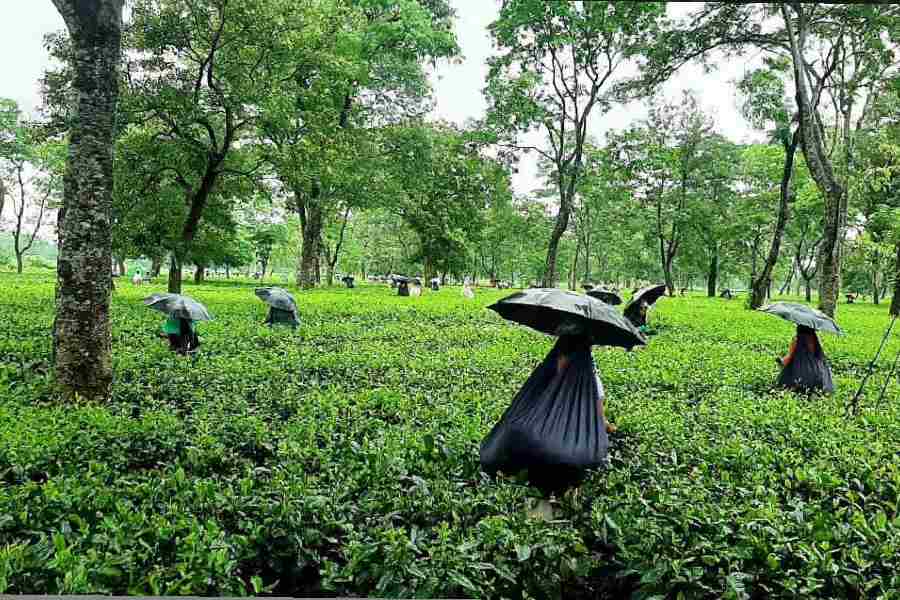The Mamata Banerjee government has come up with a draft SOP (standard operating procedure) to prevent the use of banned chemicals on small tea plantations.
A couple of months ago, small tea growers in north Bengal — around 10 lakh people are associated with the sector — confronted a crisis as the bought leaf factories (BLFs or standalone tea processing units) had stopped buying tea leaves from them.
The move was triggered by a directive from the Tea Board. If banned chemicals are found in any tea sample at any BLF, the BLF concerned would be held responsible, said the directive which was issued in compliance with the rules of FSSAI (Food Safety & Standards Authority of India)
“As BLFs buy tea leaves from growers and have no idea whether the cultivators use the banned fertilisers and pesticides, they stopped buying the tea leaves,” said a tea planter based in Siliguri.
In such a situation, the growers approached chief minister Mamata Banerjee. On April 3, Mamata, who was camping at a private resort in Chalsa of Jalpaiguri for an election campaign, assured the growers that the state government would ensure they did not face any problems.
Eventually, the BLFs resumed buying tea leaves from the growers.
“Now that the Lok Sabha elections are over, the state has come up with a draft SOP and a road map as to how the use of chemicals which have been banned in the tea industry can be completely stopped on small tea plantations,” said Bijoygopal Chakraborty, president, Confederation of Indian Small Tea Growers Associations (Cista).
On June 7, the principal secretary of state industry, commerce and enterprises came up with the SOP that was prepared in consultation with state government departments and the stakeholders.
In the letter, it has been mentioned that a district-level review committee comprising representatives of small growers, BLFs, the state agriculture department and the Tea Board can be set up to review the situation regularly.
“Also, training on food safety can be conducted for the growers. Also, growers should buy fertilisers and pesticides only from licensed shops and abstain from buying any of the 20 chemicals which have been banned,” said a source.
The pesticides should be applied strictly according to the plant protection code issued by the Tea Board. “The state agriculture department can also impose restrictions on the sale of the chemicals banned for the tea sector in tea-producing districts of Bengal.
The state has around 50,000 small tea growers who contribute around half of Bengal's total tea production.
“The Tea Board should conduct awareness camps in association with the agriculture department to educate growers as well as people who sell fertilisers. Pamphlets in local languages containing the list of 56 chemicals which are approved for use, can be distributed among growers,” the source added.
In the letter, it has been also recommended that adequate infrastructure for testing tea samples at the optimal level in the tea growing areas should be developed.
“This will reduce the chance of processing or selling tea which has the banned chemicals. We welcome the state’s move and will extend all possible cooperation from our end,” said the Cista president.

